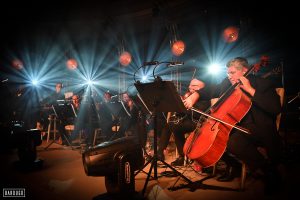
Where Words Fail: The Power of Music
-
Estimated reading time: 1` minute
At your birthday celebration, your desk at work, driving in your car, or cooking in your kitchen, music, is a consistent friend, accompanying you as a distraction, a form of leisure, or a cathartic experience. Music is paired colloquially with the term soul, as it is a powerful form of emotional expression. As Hans Christian Anderson, the beloved fairy tale author said, “where words fail, music speaks.”
Music is an artform popular throughout the course of history. From King David to Beethoven, music has played an integral part in cultural, religious, and social rites, activities, and ceremonies. The world of music, so broad in its variety, has led to schools of thought on theory; analyzing rhythm, harmony, form, melody, and structure.
It is no wonder that music has become a popular medium of therapeutic intervention. In fact, it is known that many brilliant minds have used music to promote sharper thought processes, concentration, and calm. Albert Einstein, famously, was known to take refuge in music, stating that music is what guides his intellectual and creative innovations.
With the advance of psychological therapies, expression through music to explore responses, reactions, and insights, has become a common modality. After assessment of client’s needs, the therapist can use music to help a client express that which can’t be communicated verbally. In addition to increasing communication abilities, music therapy can serve as a motivating factor in therapy involvement, as the diversity of music can speak to many different types of people and needs and subsequently help with a wide array of problems, from physical to emotional. Since music works on regions of the brain that stimulate emotion, sensation, and cognition, music often evokes positive symptoms among people with physical ailments or those who need to reduce stress levels, amongst other things.
For children with autism, music is a particularly effective form of therapy. Characterized by deficits in social communication and restrictive and often repetitive behaviors, children with ASD benefit tremendously from music therapy. According to Heaton (2005), research shows that children with autism have a heightened aptitude and sensitivity towards music and musical skill, compared to peers. Music therapy includes a variety of techniques including, vocalization (singing), composition (songwriting), listening, movement (listening), and instrument play. Over the course of multiple sessions, clients are provided with familiarity, structure, and predictability, all crucial elements of the learning process for a child with autism.
At Sulam, our music room is one of our favorite therapy rooms. Here, the children find a means for self-expression. Equipped with microphones, instruments, playback machines and a variety of tools to increase cognitive skills, motoric function, and social skills, our music therapy room provides an advantage to our children who so often otherwise would have to wait months to receive similar therapies through the healthcare funds. Most importantly though, the music therapy program at Sulam is a place where children develop a warm, beneficial therapeutic relationship, in which the therapist consistently is setting and reaching to achieve new goals. When combined with the myriad of other services that Sulam provides for children with disabilities, music therapy brings children one step closer to reaching their potential!


















